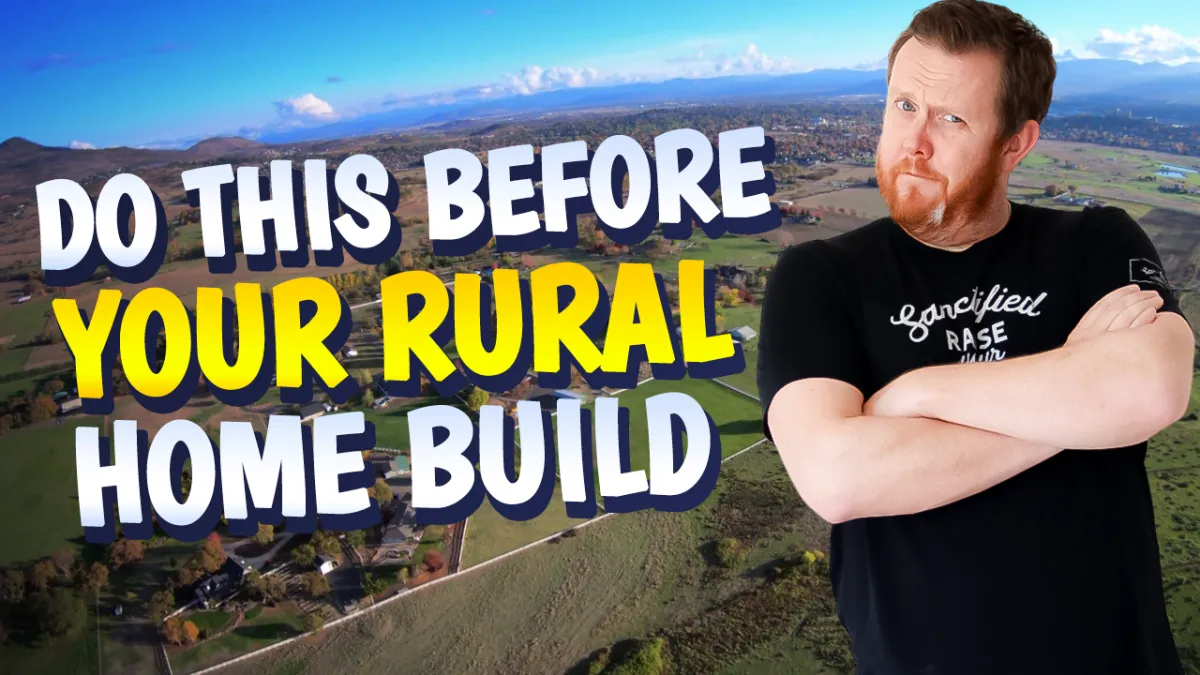
The Permit You Need Before Starting Your Rural Home Build
Hey, what's up everybody? It's TJ with Sanctified Homes and Construction, and today we're talking about the very first step you need to take before you can break ground on your rural home build in Wisconsin. Whether you've just purchased a plot of land or torn down an old structure to make way for your new home, there's a critical permit you need to secure before anything else can happen: your septic permit.
Why You Need a Septic Permit First
When building in a rural area, one of the most important considerations is how your property will handle wastewater. Unlike urban areas, where homes are typically connected to a municipal sewer system, rural properties rely on septic systems to manage this essential function. Before you can even think about getting your building permit, you must first secure a septic permit.
The process begins with a perk test (also known as a percolation test), which assesses the soil's ability to absorb water. This test determines whether the land is suitable for a septic system and, if so, what type of system is appropriate. The options could include a gravity-fed system, a mound system, or a mini-mound system, depending on the soil composition and the layout of your land.
Steps to Securing a Septic Permit
Conduct a Perk Test: The first step in obtaining your septic permit is conducting a perk test. A qualified professional will analyze the soil in the area where you plan to install the septic system. The results of this test will dictate the type of septic system you can install.
Design the Septic System: Based on the results of the perk test, a professional will design your septic system. This design will include details like the location of the system, the type of system (gravity, mound, etc.), and how it will connect to your home. The design must meet local health and environmental regulations to ensure it functions properly and safely.
Apply for the Septic Permit: Once your septic system design is complete, you'll need to submit it to your local health department or environmental services department to apply for the permit. This is a crucial step because, without this permit, you won't be able to obtain the building permit necessary to start constructing your home.
The Importance of Getting Your Septic Permit First
Securing your septic permit before anything else is vital for a smooth construction. Without it, you could face significant delays or complications that could have been avoided. Once you have your septic permit in hand, you can confidently apply for the building permit and begin constructing your dream home.
Contact Sanctified for Valuable Insights and Resources
We have also provided a detailed blog on Financial Steps for Rural Lots and an overview for rural construction in Madison, Wisconsin. For more tips and insights on building in Wisconsin, visit Sanctified Homes.
Whether you're a DIY enthusiast, a new builder, or someone looking to understand more about rural construction, getting this permit first is the key to keeping your project on track.
If you have any questions or want to learn more about the specifics of building in Wisconsin, don't hesitate to reach out. Your questions help us create useful content that benefits everyone, so feel free to ask away! In the meantime, don't forget to raise your standard. We'll talk to you guys soon!

Home Building Checklist
We understand that the process of building comes with a lot of decision-making. So we created the Home Building Checklist to guide your decision-making process, and it's yours for free here!

The Blessed to Build Foundation is a 501(c)3 Non Profit providing education & resources to help homeowners and home builders make informed choices about building homes that last.
Dane County, Wisconsin
Hire a Builder
If you are looking to build a new home in the following cities, connect with Sanctified Homes & Construction to start the conversation.
Copyright Blessed to Build Foundation, Inc. 501(c)3

